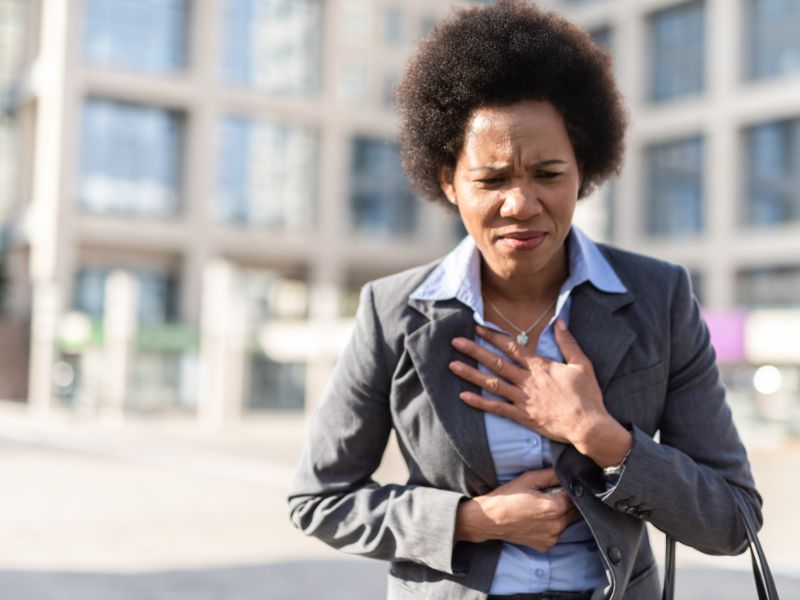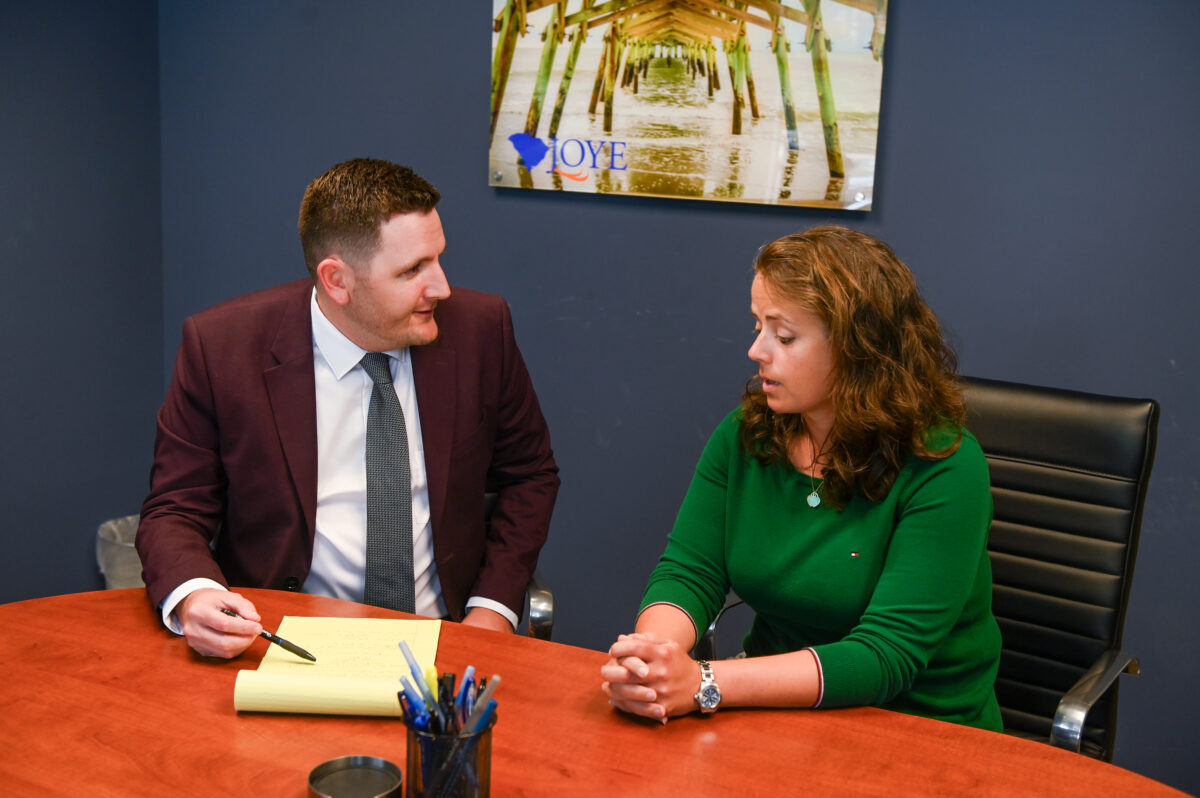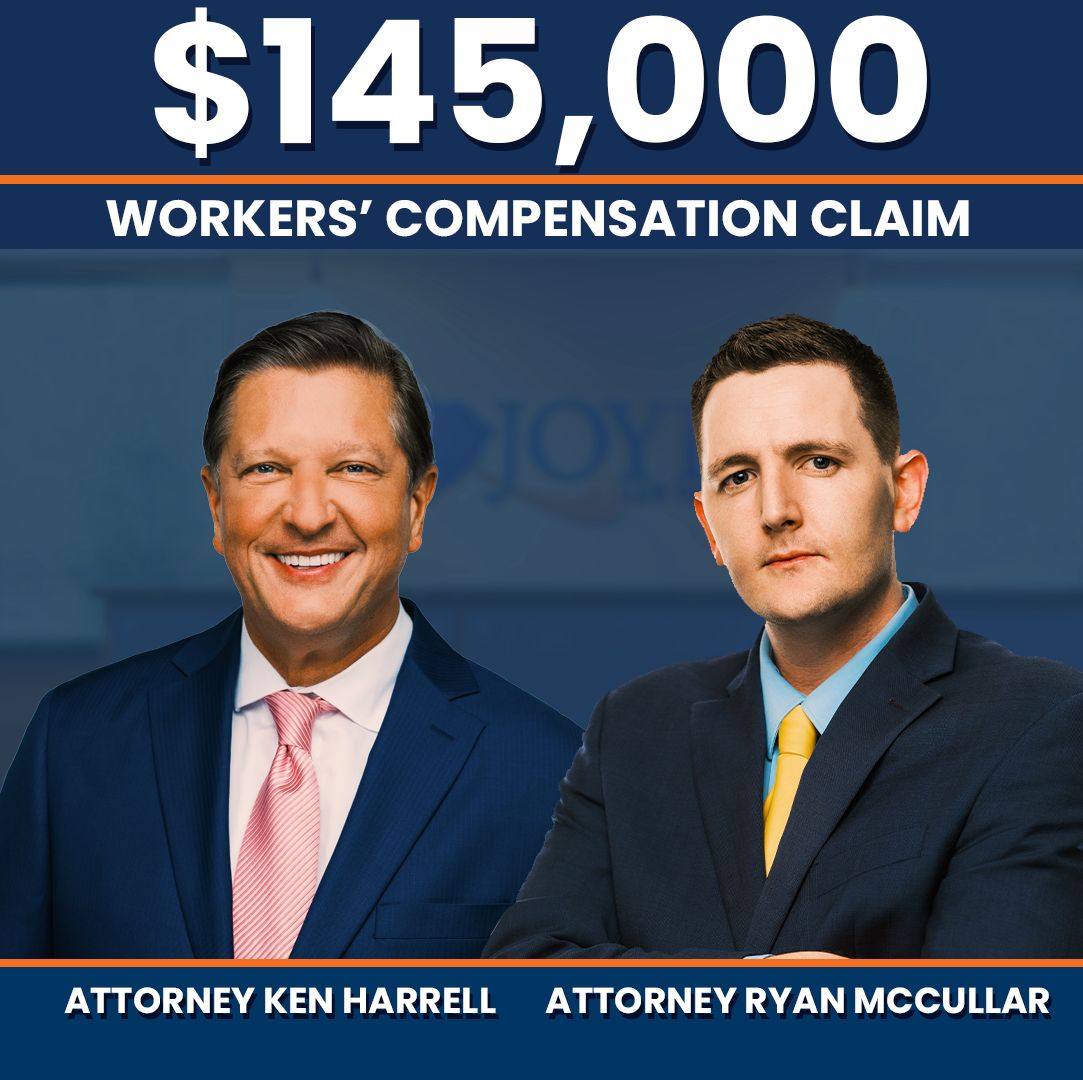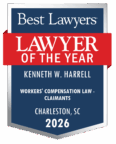
The violent impact of a car accident can cause broken ribs, punctured lungs, sternum fractures, and other serious injuries. If you experience any chest pain after being in a car accident, you should see a doctor immediately.
Chest injuries are not always obvious after a crash. Many people expect their pain to go away and discover after weeks of discomfort that they have untreated injuries.
If you feel chest pain that radiates down your left arm, you may be experiencing symptoms of a heart attack, possibly brought on by the trauma of the crash. This a medical emergency. You need immediate attention.
Once your chest injury has been diagnosed and you’ve begun treatment, you should consult an experienced lawyer to understand your legal rights if the accident was not your fault.
In South Carolina, a Joye Law Firm Injury Lawyers car accident lawyer can discuss the steps available to you during a free consultation. You should not be responsible for the hospital bills if someone else’s carelessness caused the crash. Our attorneys can help you seek compensation for medical expenses, loss of income, and other expenses that the at-fault driver’s insurance should cover. Contact us for a free consultation after you have met with a doctor and had your injuries diagnosed. If you are hurt or hospitalized, we can come to meet with you.
Causes of Chest Pain After a Car Accident
There are several ways to injure your thorax— the area between your neck and abdomen — in a car accident. When in the driver’s seat during a collision, you may hit your chest against the steering wheel. Passengers may be thrown against the dashboard, seatbacks, or doors.
Car occupants also may suffer airbag injuries to the chest and be hurt by the restraint of seatbelts during a crash. Chest injury patients don’t always remember how they were hurt in a crash.
The most common causes of chest pain after a car accident are injuries caused by blunt-force trauma. If you hit your chest against something or receive a hard impact to your chest, it can cause:
- Broken ribs
- Broken sternum (breastbone)
- Fractured collarbone or shoulder blade
- Punctured or bruised lung, either from a blow or a piece of broken rib or sternum.
- Collapsed lung or hemothorax (blood between the lung and chest wall)
- Other internal organ injuries, such as to the heart, liver, spleen, gall bladder
- Cardiac tamponade, which is pressure on the heart caused by an accumulation of blood around it
- Soft tissue injuries to muscles, ligaments, and tendons
Shortness of breath or chest pain that feels worse when you inhale after a blow to the chest indicates a significant chest injury.
Shortness of breath, drowsiness, confusion, or skin that is cold, sweaty, or blue indicates that the individual is in shock or is experiencing respiratory failure. Either one is a life-threatening condition. In shock, blood flow to the organs is low, decreasing delivery of oxygen and thus causing organ damage and sometimes death. Respiratory failure is the inability of the lungs to deliver enough oxygen to the bloodstream and body.
The severity of chest injuries cannot be determined without a doctor’s evaluation. A medical exam will involve x-rays in almost all cases, usually an ultrasound of the heart and lungs, and sometimes blood tests and electrocardiography (ECG), which measures the heart’s electrical impulses.
In addition to treating the specific injury, possibly with emergency surgery, care for chest injuries includes supporting the patient’s breathing and circulation. For some injuries, a tube must be inserted to drain blood or air from the chest.
Steps To Follow If You Feel Chest Pain After a Car Accident
If you feel chest pain after a car accident, you should see a doctor as soon as possible. You should follow all of the doctor’s orders for treatment, including hospitalization or other medical care, and for rest and time away from work.
If someone else caused a car accident that injured you, you may be able to recover compensation for your medical bills, pain, suffering, and more. In South Carolina, a Joye Law Firm Injury Lawyers car accident lawyer can help you. To prepare for a legal claim, you should:
- Save all bills, receipts, and correspondence related to the accident, your injuries, medical care, and other expenses of dealing with the aftermath of the accident. For a successful claim, you will need to document your expenses and losses.
- Report the accident to your insurer. If you have a specific medical diagnosis, report it. Do not downplay your injuries or your pain. Do not accept blame for the accident and don’t blame anyone else.
- Record what happened. If you can remember, write in your own words what happened or record it vocally. Note what you were doing just before the accident, where you were going, and who was with you.
- Do not sign anything from an insurance company. You could be releasing the insurance company from financial liability without realizing it. If you haven’t completed all medical treatment, it’s too soon to know how much money you should receive to cover your expenses and losses.
- Contact a car accident lawyer. A lawyer can help you seek a proper insurance settlement if you have suffered a chest injury in a car accident caused by someone else’s negligence or recklessness. Your attorney can handle all of the complicated steps involved in a legal claim, including gathering evidence, obtaining medical records, calculating your costs and losses, and negotiating with the insurance company. If necessary, Joye Law Firm Injury Lawyers can pursue a car accident injury lawsuit on your behalf.
Talk to Our South Carolina Car Accident Lawyers
If your life has been shattered by a car accident injury, our South Carolina personal injury lawyers can help you seek full compensation for your costs and losses. Joye Law Firm Injury Lawyers has more than 50 years of successful legal representation of the injured. We serve people across South Carolina from offices in Charleston, Columbia, Clinton, Summerville, and Myrtle Beach.
Contact us today for a free initial legal consultation at 888-324-3100 or online.

































